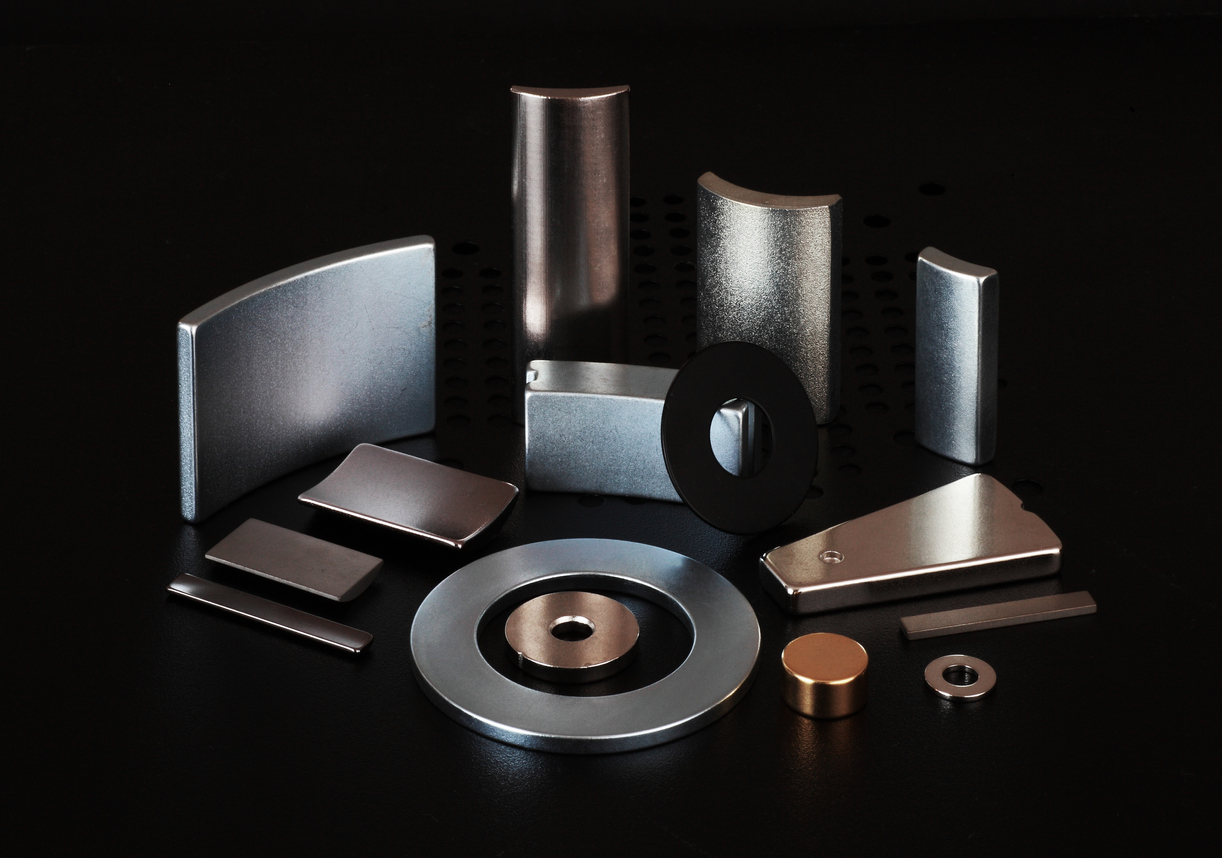Project partners aim to reduce supply risks for rare earths.
The Technical University of the German city of Darmstadt and the Fraunhofer Institute for Materials Recycling and Resource Strategy IWKS announced the launch* of their Scale2PM project on Thursday. 2PM stands for the 2-powder method, a manufacturing process for permanent magnets that aims to reduce the use of heavy rare earths such as dysprosium and terbium in particular.
The process is now being tested in detail for practical suitability as part of the project. In contrast to the production of conventional neodymium-iron-boron permanent magnets (NdFeB), whose magnetic properties and heat resistance are enhanced by adding heavy rare earths, Scale2PM uses two different NdFeB-based powders with previously defined magnetic properties. These powders are introduced into the relevant areas of the material’s microstructure. The exact chemical composition of the powders and the size differences of the particles must now be determined.
In the view of the project partners, rare earths will continue to be indispensable for a successful energy transition, as they significantly increase the efficiency of generators in wind turbines and motors in electric vehicles, among other things. However, China’s quasi-monopoly in this group of raw materials poses a supply risk. In addition, there are environmental aspects to mining. The use of heavy rare earths in particular must therefore be reduced, the report continues.
The project, which will run until fall 2025, is funded by the German Federal Ministry of Education and Research.
*Original source only available in German
Photo: iStock/xiao zhou


